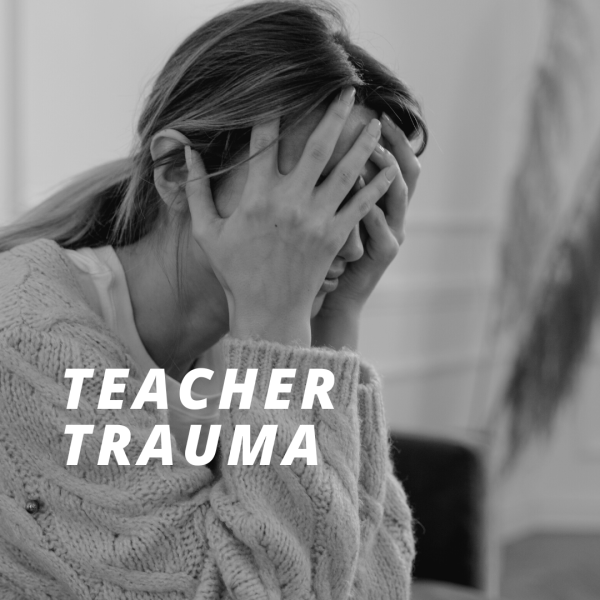Silent Suffering: Symptoms of Depression
Sometimes what looks like deep thought could be silent suffering.
What do our feelings tell us about our mental state? Is it normal to feel sad, lonely and overwhelmed? Yes, but those feelings can develop into something more threatening to the mind and body. If our emotions are causing physical or psychological harm, it’s time for help. When recognizing symptoms of depression, it is important to look and listen closely. Words, not just actions, play a big role in how people feel. Teens often want to hide how they are feeling as well as they can, so the smallest things should matter to the observer.
There are many different aspects to one’s life, especially habits and activities that may show signs of depression or physical harm. Think about the changes that people make in their lives. Are they good, bad, beneficial, or indifferent? A major symptom of depression is a change in normal activities, such as no motivation, or a loss of interest. When people change their everyday activities, and no longer find them pleasurable, there may be a concern for the overall well being of that person who silently and inwardly suffers the hidden pressures of one’s strained mental health. He or she would be in constant turmoil.

Symptoms are difficult to identify in teens.
Symptoms can be hard to recognize if the observer does not listen closely, or she may not be well aware that anything is wrong. Issues like depression and anxiety can develop symptoms very quickly and cause a lack of impulse control. This sudden, destructive behavior may be easy for everyone to recognize because the change is so fast. Alternatively, emotional downturns can be gradual and happen over time. When the process is slow, the teen, and those in her immediate care, can often overlook clear warning signs that her emotional state is breaking. Sometimes the gradual onset of symptoms is worse due to the fact that a teen can plunge much deeper into the undesired behavior, thus, making it difficult to return. Conversely, an immediate and erratic change in behavior brings attention to the sufferer immediately. Observing poor choices and undesired behavior in teens early can keep them from plunging deeper into psychological maladies. Feelings of worthlessness or a lack of purpose are at an alarming level in today’s teens. Having low self-esteem can be a symptom of depression, which could later lead to more harm; other symptoms could be feeling a sense of guilt or feeling unworthy. It is very important for adults to look for signs that teens may be silently suffering symptoms of poor mental health. Depression, fear, and anxiety affect people in many different ways. Because teens have such a vast reaction to their issues, symptoms of one’s mental health may be difficult to discover.
Eating disorders are the most common symptoms of depression among teens, especially girls. People find relief in eating. It can also go the other way. Overeating is also a form of depression if it gets to an unhealthy point. In the United States, 10 million men and 20 million women will or have experienced an eating disorder. Eating disorders are not all about the food; they can involve genetics and brain biology. Personality traits such as neuroticism, perfectionism, and impulsivity are also linked to a higher risk of someone developing an eating disorder. The most common eating disorders among teens include: anexoria, bulimia, binge eating disorder, pica, rumination disorder, avoidant/restrictive food intake disorder. Some eating disorders may go unnoticed for a while until there is a change in appearance.
Many times it is easy for teens to get impatient and moody, those behaviors could be warning signs of depression. Getting aggravated easily and having a bad temper all the time is not normal. Although it is not always depression-related, being aggravated or having a bad temper more than usual could lead to more sadness and anger, as well as having reckless behavior. Adults are observing these symptoms in teens, but find it difficult to start a dialogue with them. Some adults may see their children start struggling in school, some adults may not get the hint that their kid is depressed. If the adults do not start the conversation, it’s up to teens to speak first. The biggest obstacle between parents and children is the fear of being misunderstood.
Substance abuse is a way that some people choose to deal with depression. Overuse of any type of prescribed medication or illegal drugs can lead to death. Overdosing is an emergency medical situation. Taking drugs prescribed for someone else, or taking a drug the wrong way, can cause problems. Substance abuse can also mean consuming too much alcohol on a regular basis. Heavy drinking can cause liver and other health problems or lead to a more serious alcohol disorder.

Students should watch for isolation and antisocial in their friends..
Pay attention to the changes and choices that people make, including classmates. It is important to look for signs or warnings of depression early on so others can guide a person to the help they may need. A parent or friend can help someone with their situation or help them find help. If you are aware of someone who shows these symptoms, or you are showing any of these signs, please do not hesitate to get help.
More symptoms of depression can include, difficulty concentrating, difficulty making decisions, irresponsible behavior, memory loss, withdrawals, reclusivity, drop in grades, anxiety, sleeping disorders, and preoccupation with death or dying.
National Help Hotline: 1-800-662-HELP (4357)
National Suicide Hotline: 1-800-273-8255






